Interview by Emily McDermott // Apr. 09, 2019
Following what he calls a “full-on mystical experience” in 2016 in Helsinki, photographer Alec Soth pressed pause on his familiar routine of traveling, giving talks, hosting workshops and taking photographs around the world. He instead retreated to a farmhouse outside of his hometown of Minneapolis, Minnesota, where he stayed for nearly a year, contemplating his role as a photographer, as well as allowing himself extensive time to meditate and collaborate with others. He questioned what it meant to photograph strangers, as he had been doing for the previous decade, and put them out into the world—both in the form of books and unique prints hung on (and sold from) gallery walls.
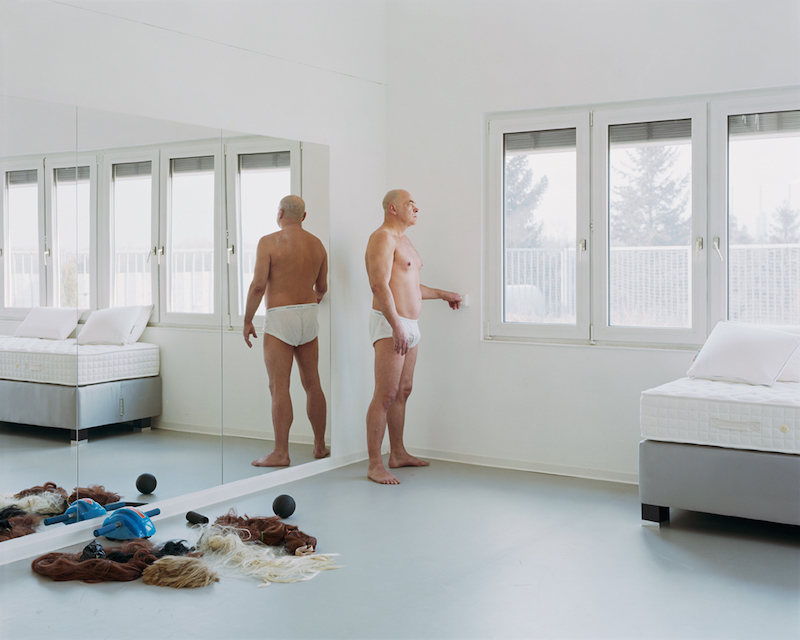
Alec Soth: Leon. Berlin, 2018, from I Know How Furiously Your Heart is Beating (2019) // Courtesy of the artist and MACK
Soth first gained notoriety in 2004 with his project Sleeping by the Mississippi, a collection of photographs made during a loosely planned road-trip along the Mississippi River. We see an abandoned metal bed frame overgrown with greenery along the shores of the wide body of water; a woman in her living room holding a framed photograph of the sky, which she deems an image of an angel; a chain-gang cleaning up litter near the base of a Christian cross, towering in the sky, more than six times their height. The images published in this book—much like those in Soth’s additional projects including Niagara (2006), Last Days of W (2008) and Songbook (2015)—chronicle a specific corner of life in Middle America.
When he came out of his self-imposed farmhouse exile, however, Soth cared less about place and more about people. His newest project, published in the book I Know How Furiously Your Heart is Beating—images from which are on view in four concurrent exhibitions around the world, including one at Loock Gallery in Berlin—presents an array of honest, intimate portraits of people in seemingly random places. We’re taken from a choreographer’s living room in Kentfield, California, to a photographer’s bedroom in Cincinnati, Ohio, to private interior spaces in Warsaw, Berlin, Odessa and more. The day after the opening in Berlin, we sat down with the artist to discuss this transformation, his preference for windows over mirrors and his surprisingly unfavorable feelings toward travel.
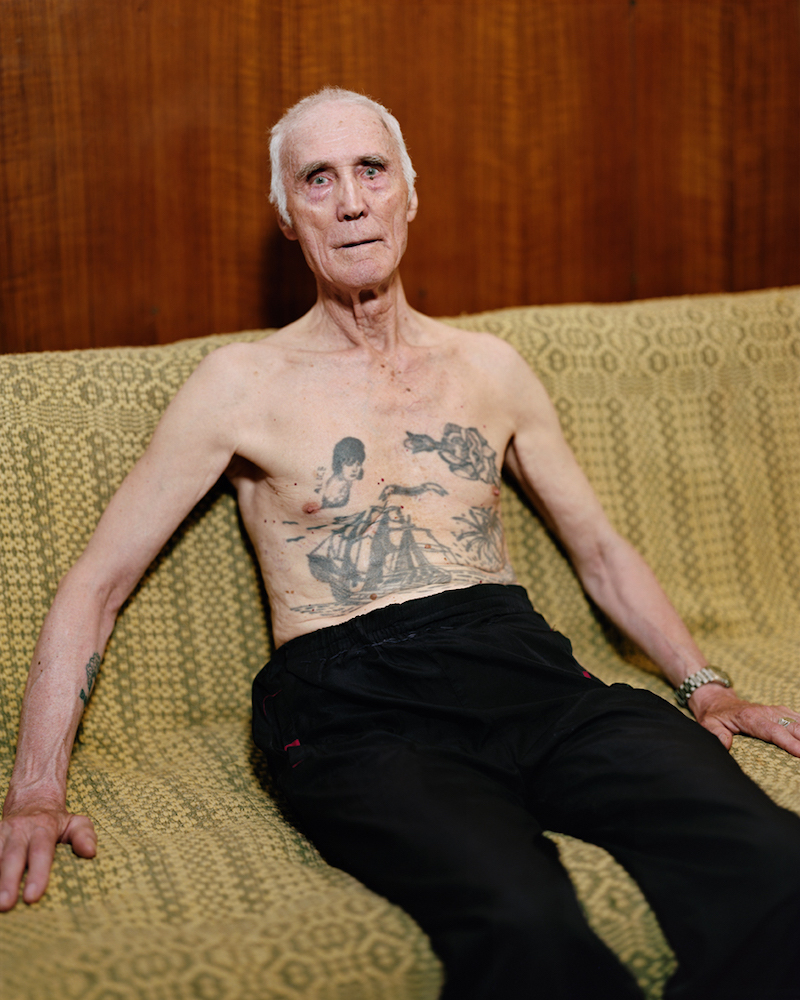
Alec Soth: Leopold. Warsaw, 2018, from I Know How Furiously Your Heart is Beating (2019) // Courtesy of the artist and MACK
Emily McDermott: Almost all of the articles about I Know How Furiously Your Heart Is Beating begin with the story from Helsinki, but I’m more curious about some of the stories behind some of the images.
Alec Soth: With some images, I happen to have stories, but I was being less narrative with this project. I wasn’t revealing as much. In Sleeping by the Mississippi and Niagara, there are things in the back of the book that tell some of the stories. With this one, I thought, “I’m not going to give that information.” But, of course, there’s always a tension: “I want to do the stuff for myself, but I also want to make money, and also the stuff that I do for other people is engaging…”
EM: When you do something for someone else it automatically has a purpose in the world.
AS: Right. I’ve had that tension in my life, and for a period of time I stopped engaging in the magazines and the jobs and publicity and pulled back. I said no to everything. Then, when I started engaging with it again, I started saying yes to everything—whatever random invitations—as a way to take me somewhere unexpected to go make pictures.
EM: What led you from “no” to “yes”?
AS: I felt ready. I was in the Bay Area and made a picture of [the choreographer] Anna Halpern, and I just really loved it. I thought, “Yeah, I can do this again.” But all of my work in the past has been about place to some extent, and I didn’t want that to define this work. I wanted to define it as an engagement in a space. If I did it all in my studio or all in Minnesota, it would change the way it’s understood—that would be the thing people would talk about. But in the end, there’s a randomness: it’s really hard to link Cincinnati and Warsaw. There’s a lot of Eastern European places just because that particular year I got invited to those places. That’s how I did not pick the places.
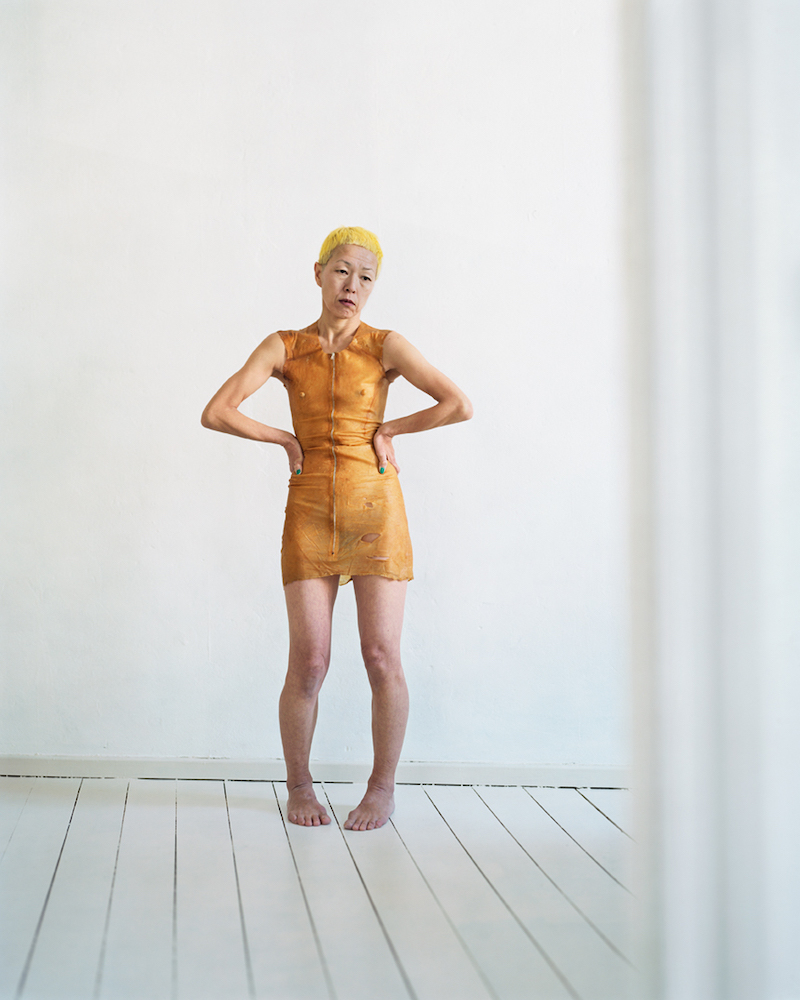
Alec Soth: Yuko. Berlin, 2018, from I Know How Furiously Your Heart is Beating (2019) // Courtesy of the artist and MACK
EM: Can you tell me about how you found the people you photographed, for example Michelle?
AS: It was pretty clumsy. I had that experience with Anna Halpern, and I liked the idea of [photographing] dancers because they understand the body and movement and physical space. I thought I had a lot to learn from that. So, early on especially, I said dancers are of interest. I reached out to a photographer in Dusseldorf who recommended the woman with yellow hair, Yuko. I met her and then she recommended Michelle, who used to be a dancer but isn’t anymore. It was as simple as that.
Last night I had an interesting experience: Michelle came to the gallery, and whenever I encounter a person I’ve photographed, I feel guilty. I always feel like I’ve done something wrong, taking someone’s picture. It’s on the wall, it’s for sale.
EM: Do you feel like you owe that person something?
AS: Yes, and I feel like I’ve exploited that person for a personal gain. When I made this project, though, I didn’t feel that. I felt good. She and I had a really great, powerful exchange in that space. But now we’re in the phase with the picture on the gallery wall and my name on the show. She walks in and I’m like, “Ugh!” The night before, the man in Dan-Georg walked in to an event I had in Dusseldorf—same feeling. In each case, they were super warm and kind, they felt honored and were happy. But I still, no matter what, feel a little bit of guilt. That dynamic is definitely in the mix of this work. I guess what I’m saying is that it can be this very meaningful, impactful encounter, but I am conflicted about the way these things spin-off in the world. It does appear that the process is less fraught than it used to be, though, which was my goal with the new work.
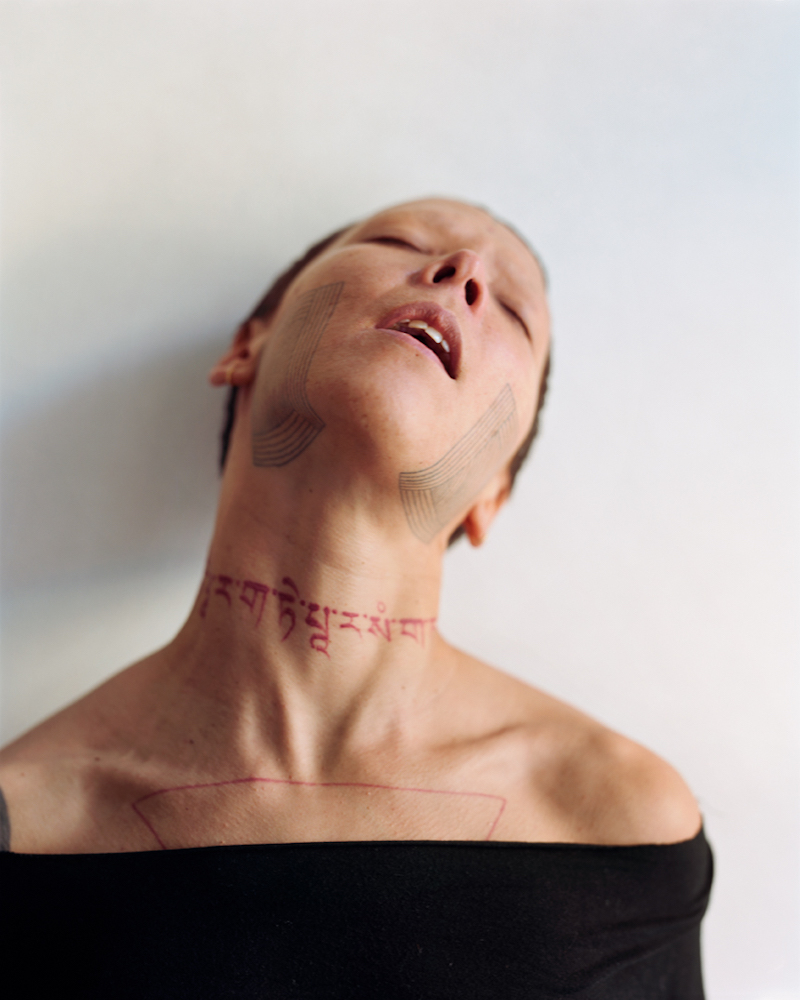
Alec Soth: Michelle. Berlin, 2018, from I Know How Furiously Your Heart is Beating (2019) // Courtesy of the artist and MACK
EM: I was very curious about Dan-Georg, who, in your photograph, is standing in his bathrobe in front of a Picasso painting. None of the other images have such an identifiable object. When I saw that, I couldn’t help but immediately Google him.
AS: One thing about that was addressing another element of my discomfort: in the past, so many of my subjects were on the poorer side of the financial spectrum. When I did Songbook, we really made an effort to access wealth as well, but we had a hell of a time. I partly understood because that work was about social issues, so people were afraid they were going to be judged. In this case, the work wasn’t about economics at all; I felt it was important that just as I could travel anywhere, there weren’t certain classes of people and that wasn’t the defining characteristic.
EM: Going way back, at what point did you start traveling so much? It’s obviously become an important part of your life and practice.
AS: This is the really bizarre thing: I don’t love traveling. As a kid, I was a homebody. I didn’t have fantasies of backpacking through Europe. At a certain point, I did have the American road trip fantasy, but it wasn’t like, “I want to be a Magnum photographer and travel the world.” To me, it’s equivalent to finding it exhausting to interact with people. Like, why do I do these two things? So many people I meet, their biggest dream in life is to travel all the time. It’s so weird that it wasn’t mine, but that’s what I ended up doing.
I did Sleeping by the Mississippi in 2004 and it had success, so I started traveling for that, because of that. Then, it just snowballed. I had a gallerist in Minneapolis, Martin Weinstein, and he gave me this advice: “Never stop traveling.” It really pissed me off. I wanted to be a photographer who could work at home, and I still want to. I’d love to make a project in Minnesota. I always talk about it, I just haven’t been able to pull it off.
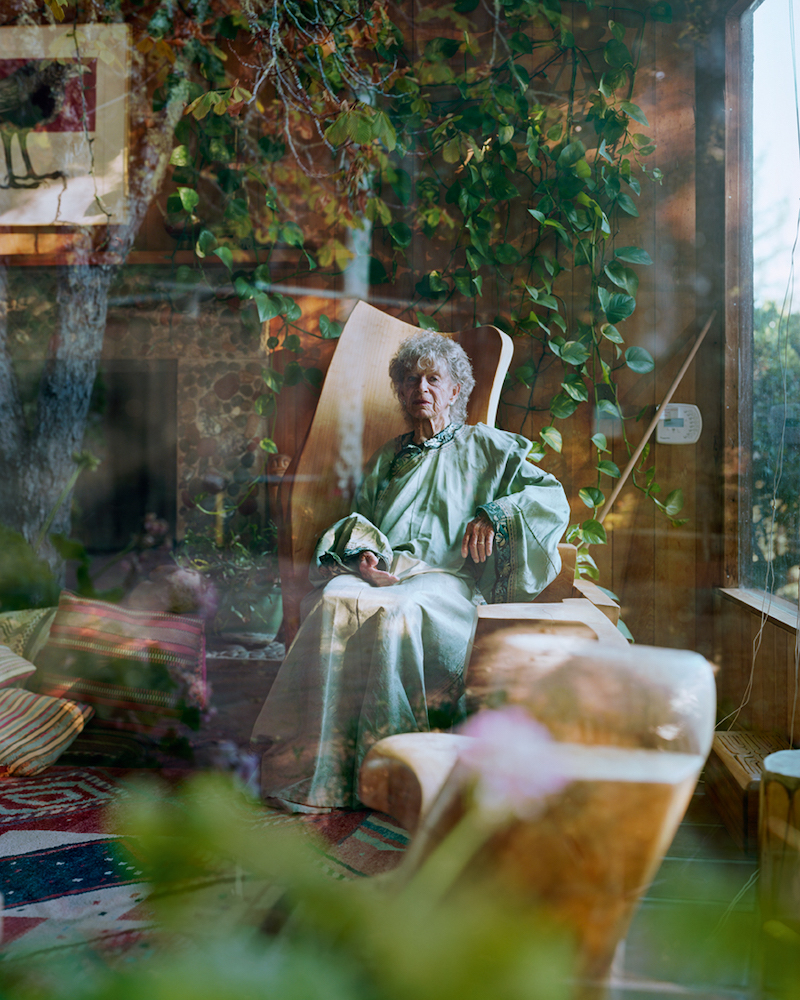
Alec Soth: Anna. Kentfield, CA, 2017, from I Know How Furiously Your Heart is Beating (2019) // Courtesy of the artist and MACK
EM: Now that you’ve been traveling so much for this project, what is it like if you don’t particularly enjoy it?
AS: The thing about travel for me—no matter if it’s international or in the US—is that I’m able to give myself over entirely to what I’m doing. It’s a lack of distraction. When I’m photographing in Minnesota, it’s so easy to think, “There’s some problem with the kids, I gotta go pick them up.” When I’m traveling, it’s a total focus and there’s a loneliness that I draw from, that gives me creative energy. You’re in the hotel and you can’t stay in there forever. You have to go out and make pictures. You can’t just diddle around on the internet in the same way you can at home. You feel super guilty [if you do that]. It’s a strange dynamic, but it seems to be my dynamic.
EM: I found it particularly interesting that so many images in the book have mirrors or use windows as points of reflection.
AS: There’s something about photography in the past, the way photographs are mirrors but also mirrors in time. I think a lot about John Szarkowski, who was the director of photography at the Museum of Modern Art, and his book and exhibition called Mirrors and Windows: American Photography Since 1960. He divided photographers into these two categories: mirror photographers and window photographers. He said it’s a spectrum, of course, but I’ve always thought it a useful way to think about the medium. It’s also helped me understand myself as a photographer.
I was hugely influenced by Stephen Shore, for example, but at a certain point I realized I was less of a window guy than he is. He’s pure window. Of course, windows have reflections at certain times of the day, so sometimes they become mirrors; I might look like a window photographer, but it’s a highly reflective window. That metaphor is made literal in many of these images, where you see my own reflection, and I’m grappling with that.
The other thing I’m grappling with is my knowledge that you can actually open the fucking window sometimes! [laughs] You don’t have to make this division between the world out there and the world in here. Sometimes the air flows in between. I opened the window in my hotel room this morning, which was so great. I love when windows in hotel rooms open. I also love the windows that seem to be more in Germany than anywhere else, the windows that open two ways. Why don’t we do that in the US?! You could make a million importing these, and Japanese toilets.
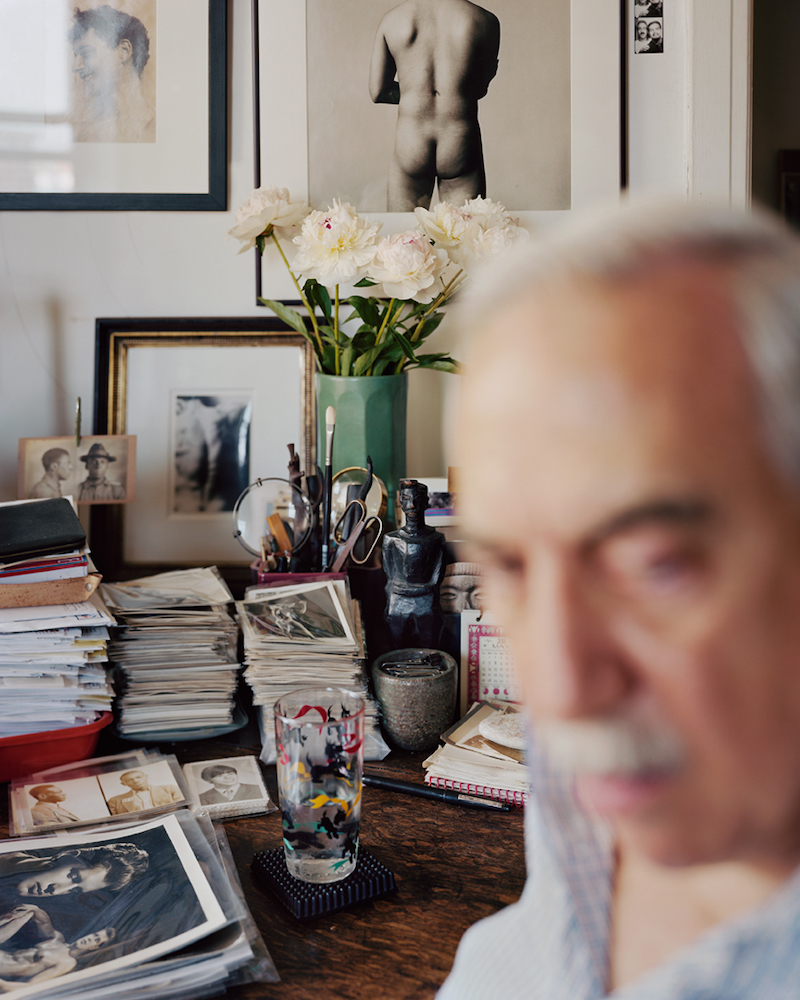
Alec Soth: Vince. New York, 2018, from I Know How Furiously Your Heart is Beating (2019) // Courtesy of the artist and MACK
EM: I read that you were quite shy when you first started making photos. When I first started interviewing people, I too was rather shy but soon found the process very liberating because it immediately breaks down this barrier. There’s an excuse to talk to somebody, a reason to shove the shyness under the carpet. Do you experience something like this when making photographs?
AS: Totally. Without a doubt. It gives you a way to put the shyness away or to deal with it. It’s like your biggest fear in life is flying and you’re like, “Okay, I want to be a pilot, I want to get through this thing.” Because of all the practice, I’m not shy in that way anymore, but I do find that time with other people takes energy away from me, it depletes it. These openings suck the energy out of me. Last night I was thinking, “Musicians do this all the time, one after another after another after another. No wonder they become drug addicts!”
EM: Because you’ve already done so much press for this project, I wanted to ask if there’s anything you’ve been thinking about that hasn’t come up during interviews?
AS: I don’t think it’s very easy to communicate, but I’ve been really interested in the way that doing an interview is like what I was doing [with portraits]. You and I are sitting in an interior space, we’re about seven feet apart from each other, which is approximately where I would stand [when photographing people], and this dynamic bears resemblance. With almost every picture, I wasn’t within the range of touching [the subject], so there’s a proximity factor that’s important in the work and has a lot to do with the relationship to dance: Everything changes depending on the physical space. What if you sat right here next to me, or were in the far corner? The whole room would feel different for both of us. How would our exchange be different? That feeling and relationship to another person in space is a lot of what [my process] is about.
EM: In that vein, I’m curious what it’s like working in different regions of the world because the idea of personal space and how one relates to space is drastically different from one place to the next.
AS: I think a lot about personal space and breaking that down. It’s so different, and people’s domestic spaces are also very different. Up in the north [midwestern United States], we’re pretty distant people, whereas southern places tend to have more closeness. In all of these Eastern European places, my options for photographs were also so limited. It was just the bed or the couch. With this [large-format] camera, it gets harder and harder as you get closer because the focus is super narrow, and I was using only natural light. So the closer you are, the harder it is to make it work.
The last thing I’ll say is that when doing an interview, and I’ve thought about this with photography, there’s a therapy-like dynamic. During interviews, something will pop out—and today this body, space, proximity thing feels important.
This article is part of our monthly topic of ‘Travel.’ To read more from this topic, click here.
Exhibition Info
LOOCK
Alec Soth: ‘I Know How Furiously Your Heart Is Beating’
Exhibition: Mar. 19–Apr. 19, 2019
Potsdamer Straße 63, 10785 Berlin, click here for map

Alec Soth: Ute’s Books. Odessa, 2018, from I Know How Furiously Your Heart is Beating, 2019 // Courtesy of the artist and MACK



















